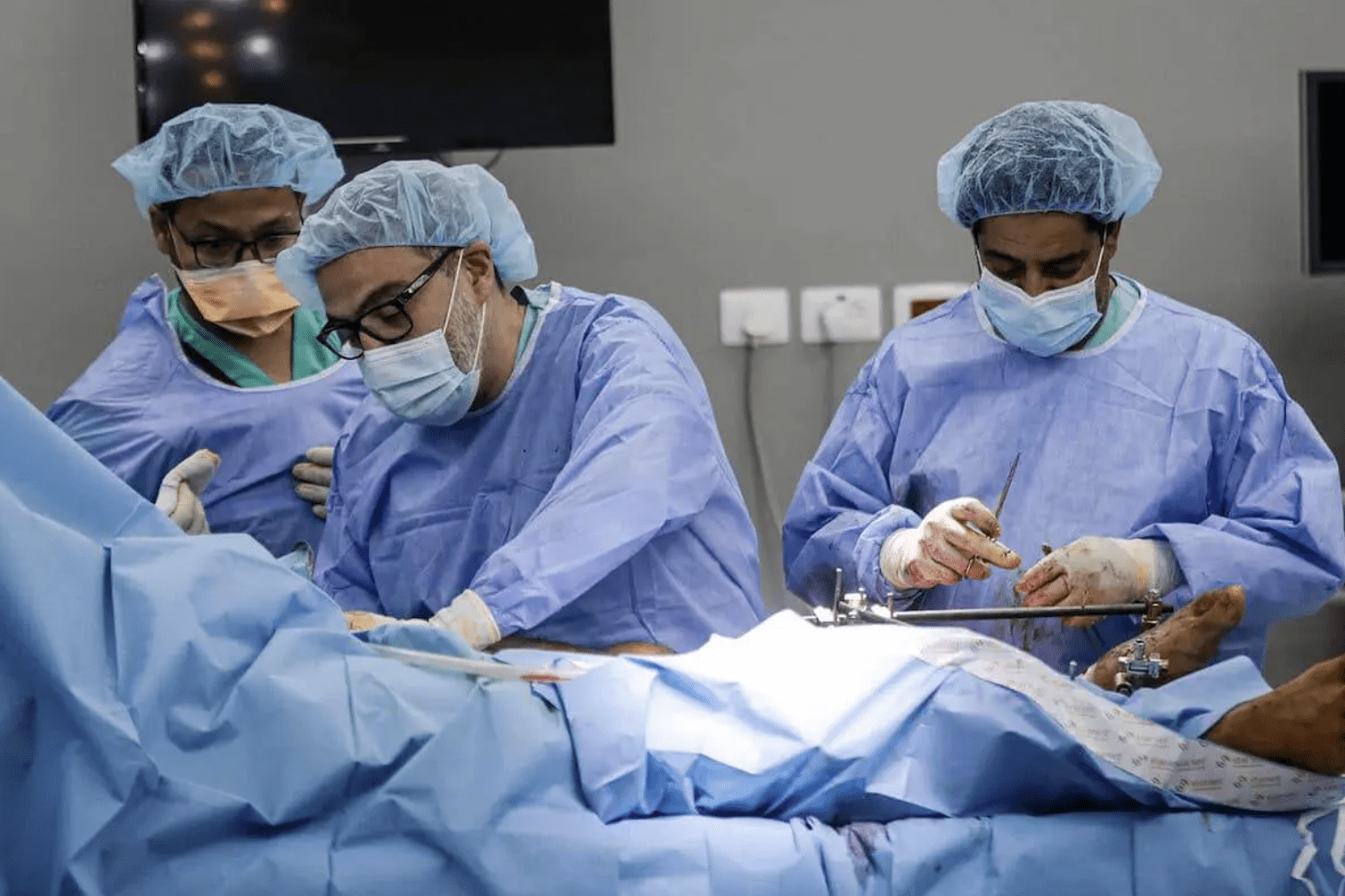Palestinian surgeon Abu-Sittah, who worked in Gaza, is not allowed to enter the Netherlands to speak about his experiences. The reason: a Schengen-wide ‘administrative ban’. Abu-Sittah: ‘This is what accomplices to a crime do.’

While Minister of Foreign Affairs Hanke Bruins Slot shakes hands with one Israeli official after another involved in serious crimes in Gaza, the Dutch government prohibits British-Palestinian doctor Ghassan Abu-Sittah from entering the country. The surgeon, also rector of the University of Glasgow, witnessed the Israeli massacre in Gaza during the first months of Israel’s offensive.
Abu-Sittah was planning on being in the Netherlands next week. He was scheduled to, among other things, speak at the University of Amsterdam, and on May 17 at an event organized by The Rights Forum in Pakhuis de Zwijger in Amsterdam. He was also supposed to have a meeting with Dutch MPs, including Kati Piri (GroenLinks-PvdA) and Ruben Brekelmans (VVD).
Immediately after Hamas’s cruel attack in southern Israel on the 7th of October, 2023, and the first Israeli retaliatory attacks, Abu-Sittah traveled to Gaza, as he had done during three previous Israeli attacks. For six weeks, he performed surgeries non-stop. He frequently spoke to the international press about the disaster unfolding there.
Since returning home to his residence in London, he has given numerous interviews criticising Israel’s unprecedented violence – ‘the killing machine masquerading as a state‘. He also established the Ghassan Abu-Sittah Children’s Fund for the injured and traumatised Palestinian children in Gaza.
On April 12, upon arrival by plane in Berlin, he was denied entry into Germany. Abu-Sittah was supposed to speak there about his experiences in Gaza at the Palestine Congress. The congress, which was supposed to last three days, was banned by the authorities after the first speaker. Hundreds of attendees were forcefully removed by the police, and Abu-Sittah was sent home on a plane.
‘This is what accomplices to a crime do,’ he said on that occasion. ‘They hide the evidence and silence or intimidate the witnesses.’ Germany is a loyal ally and one of the largest suppliers of weapons to Israel.
Since October 7, numerous gatherings have been banned by the German authorities, and many protesters against Israeli violence have been arrested, including many Jews. The ‘Archive of Silence‘ kept by German scholars gives an impression of the scale on which unwelcome voices are suppressed in our neighbouring country.
Last Saturday, May 4, Abu-Sittah was also denied entry to France. Upon arrival in Paris, where he was supposed to speak at a symposium in the Senate, he was informed that Germany had imposed a Schengen-wide ‘administrative ban’ on him for one year. A reason was never given.
The Netherlands is now following the German and French example. The only reason given for refusing Abu-Sittah entry is the administrative ban.
‘At the event organized by The Rights Forum on Friday, May 17, Abu-Sittah was also going to speak about the suppression of apparently unwelcome voices in Germany and France,’ says Gerard Jonkman, director of The Rights Forum.
At the event, which will proceed despite Abu-Sittah’s absence, Wieland Hoban, chairman of the Jewish organization Jüdische Stimme für gerechten Frieden in Nahost, one of the organizers of the banned Palestine Congress in Berlin, will also speak. A few weeks before the congress, the organization’s bank account was blocked under pressure from the authorities. In 2019, a previous bank account of Jüdische Stimme was closed.
Jonkman: ‘It is shocking and, as far as we are concerned, completely unacceptable that Abu-Sittah is now also denied entry to the Netherlands. Apparently, our government considers his testimony a threat to the close relationship with Israel and Dutch complicity in the massacre in Gaza. The decision is in direct violation of fundamental freedoms such as the freedom of speech.’